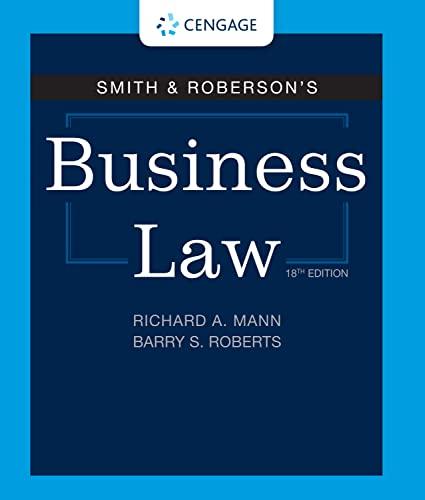Question
Demonstrate a critical thought process about below: Consent searches are searches in which individuals give officers permission to search them and/or their houses and personal
Demonstrate a critical thought process about below: Consent searches are searches in which individuals give officers permission to search them and/or their houses and personal belongings without either warrants or probable cause. It's difficult to estimate the number of consent searches, but they may be the most common. We do know that "the vast majority of people" who do consent to searches or to allow officers to conduct a pat down are innocent (Nadler 2002, 209-10). We also know that most of the people who consent are young, poor, and not White (Cole 1999, 28). Consent searches also definitely make law enforcement officers' jobs easier because officers don't have to go through the hassle of either getting warrants before they search or proving probable cause to a judge later. We also know that consent searches allow officers to search where they couldn't otherwise because they couldn't get warrants or they lacked probable cause. Lawrence P. Tiffany, Donald M. McIntyre, Jr., and Daniel L. Rotenberg, in their classic The Detection of Crime ( 1967), interrogated consent searches as part of the distinguished American Bar Foundation's massive ethnographic research into the day-to-day operations of criminal justice in America. They found that officers prefer to search by consent even when they have probable cause to obtain warrants because consent searches are convenient. "Search warrant procedure is overly technical and time-consuming, and has no corresponding advantages for them or meaningful protections for the individual" (157-61). But convenience isn't the only reason for consent searches. Necessity also drives police officers to ask individuals to consent to searches. Officers need consent when they don't have probable cause or can't get a warrant. For example, it's well known that drug dealers travel by bus or plane, but officers don't have probable cause to search most passengers. So they approach travelers, ask if they can talk to them, explain the seriousness of the drug problem, and ask them if they mind having officers search them and their belongings. According to the anecdotal evidence supplied by officers, most travelers give their consent, especially when officers are polite and respectful
Step by Step Solution
There are 3 Steps involved in it
Step: 1

Get Instant Access to Expert-Tailored Solutions
See step-by-step solutions with expert insights and AI powered tools for academic success
Step: 2

Step: 3

Ace Your Homework with AI
Get the answers you need in no time with our AI-driven, step-by-step assistance
Get Started


